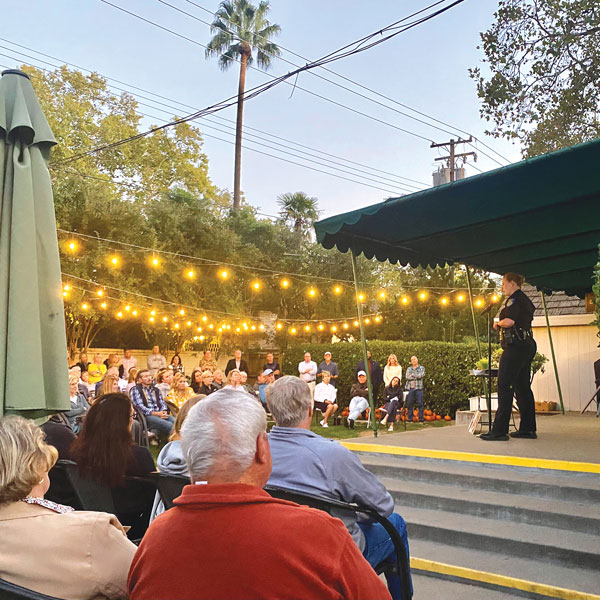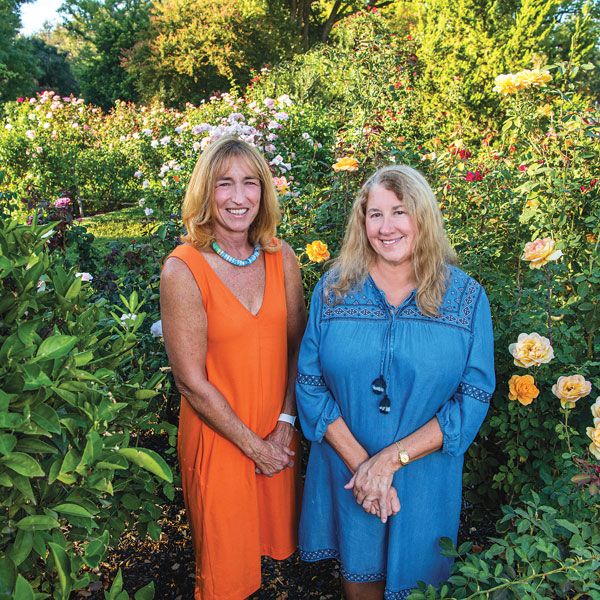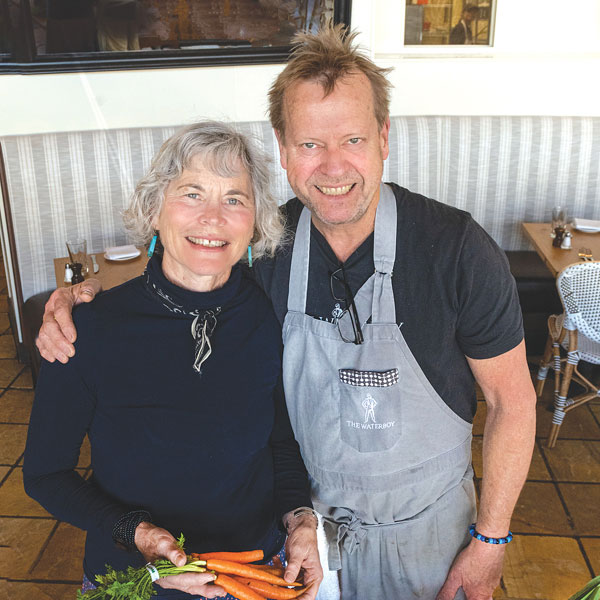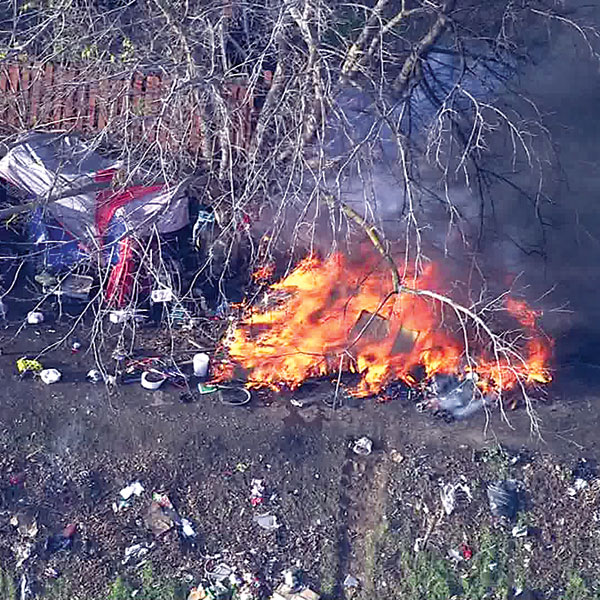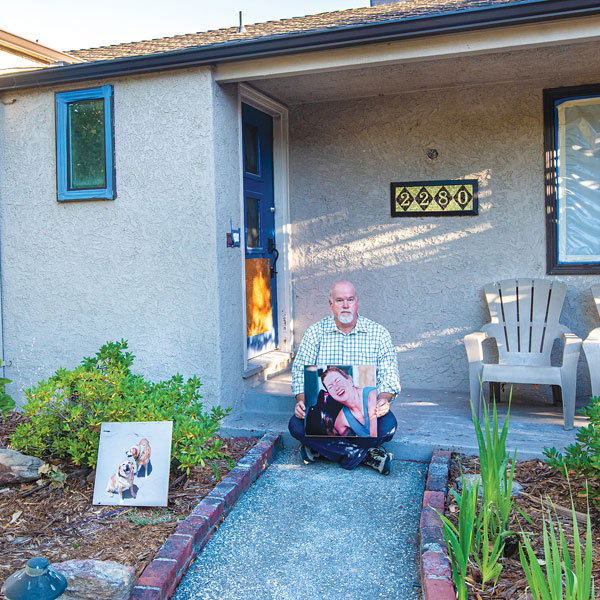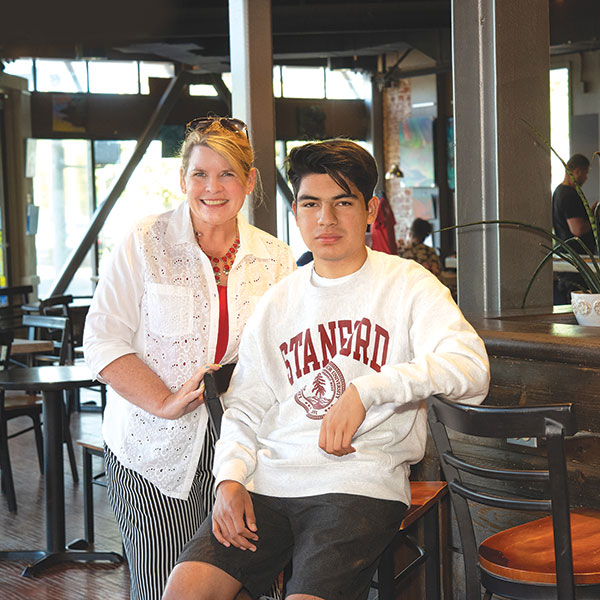
Nov 28, 2022
News of a murder next to Sutter Lawn Tennis Club arrived as a text message from a friend. My first thought was the location must be confused with the Sutter Club located near the Capitol.
It was no mistake. The unthinkable happened in my neighborhood. An older gentleman was shot in the face with a rifle. He was on his way to his weekly card game at Sutter Lawn.
In an instant Charles Starzynski joined James Raleigh and Mary Kate Tibbitts as a murder victim in one of our city’s best neighborhoods.

Oct 28, 2022
Ten years ago, filled with energy, optimism and can-do spirit, Lisa Schmidt and I took on the monumental job of saving the Clunie Community Center and McKinley Rose Garden in McKinley Park.
We founded a nonprofit called Friends of East Sacramento in 2010. That was the easy part. The rest of the story is an adventure in generosity, volunteerism and community pride, along with the darker parts of human nature, from petty jealousy and troublesome neighbors to crime.
Faced with drastic cuts to city park budgets, the rose garden and community center faced a crisis after the Great Recession in 2009. The center was headed for closure. The city was unwilling to spend $100,000 a year to keep it open. There were no funds for much-needed maintenance.

Sep 28, 2022
Sacramento is still recovering from COVID-19. As of September, the pandemic killed 3,399 people in Sacramento County, with 1,830 COVID deaths in the city. Those numbers are tragic, and they especially impact older folks with pre-existing conditions. But just about every problem faced by our communities, schools and businesses resulted from broad lockdown policies authorities ordered despite the societal and economic damage closures would inflict. It was myopic, short-term, “let’s do something” thinking that will negatively impact a generation.
Many experts advocated for isolating medically vulnerable people, rather than the entire society. Their voices were slandered and censored by lockdown architects, led by Dr. Anthony Fauci, chief medical adviser to the president. He recently stated lockdowns had not gone far enough.

Aug 28, 2022
While massive wildfires in California make headlines, the increase in fires around homeless encampments doesn’t receive the same attention. Sacramento endures this alarming trend with other major cities, including Oakland, Los Angeles, San Francisco and San Jose.
Sacramento’s 2022 homeless count found 9,278 unsheltered people in the county. Despite massive taxpayer investments, the numbers continue to move in the wrong direction. The county had 5,570 homeless in 2019, and 2,538 in 2013.
During the past decade, encampment-related fires grew with the homeless population. An April 2022 report by the Sacramento Sierra Club notes the Sacramento Fire Department responded to 536 encampment fires between 2013 and 2019, an average of 89 a year. The report cited 156 encampment fires in 2021.

Jul 28, 2022
“Kate was my sister, but also my close friend. We lived a mile apart and walked several times a week in Land Park with our dogs. And, as of that fateful day last year, my friend is not here anymore. That will be with me forever,” Dan Tibbitts says.
Kate Tibbitts was raped and murdered last September in her home on 11th Avenue. Her dogs Molly and Jenny were killed. Her house was torched.
The next day police arrested a homeless man named Troy Davis for parole violations and warrants. Murder and rape charges were added when investigators linked Davis to Kate’s death.
A history of assault, battery and drug charges follows Davis from at least 2013. The parolee was arrested for car theft three months before Kate was killed. But California’s zero-bail policy put him back on the streets almost immediately.

Jun 28, 2022
As most Sacramento middle-schoolers celebrate the lazy days of summer, a few fortunate students are beginning a life-changing journey.
Breakthrough Sacramento, an educational nonprofit, operates a middle school summer academy taught by college students. After closing in 2020 under the pandemic and reopening with a hybrid model in 2021, the program is back in full force for its 28th year in Sacramento.
